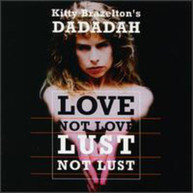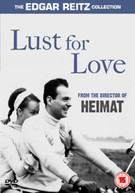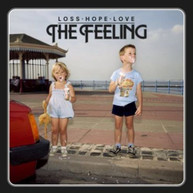Other Details
-
Description
UPC/Barcode: 700261287201
About Our Music Today, the music world labels the songs we perform ”Early Music,” but for people living during the reign of Elizabeth I in England, this was popular music. These songs were performed in private homes, banquet halls, theatres, pubs and on street corners. If a composer were lucky enough, his songs might even be performed at court. The mainstay of our repertoire is lute songs. Lute songs were published in books of ’ayres’ with a melody line, lyrics and notated lute accompaniment, some with four–part vocal arrangements. In a lute song, the melody line is always the most important. A madrigal, by comparison, is always written for multiple voice parts and is always sung a cappella (without instrumental accompaniment). It is fully polyphonic and cannot be sung as a solo. With few exceptions, the English composers of the time specialized in one form or the other. Our repertoire also includes popular ballads of the era. These songs were not published in printed books, but have only been discovered in handwritten manuscript form, sometimes with a lute part notated. It is impossible to know for sure who originated the popular ballads of the day, since they were passed orally from musician to musician. A minstrel in 1600 would copy any new song he heard into his ”fake book.” He might add his own bass line or harmony, or write a new lyric to put his own stamp on it. This led to a great number of regional variations, such as the Appalachian versions you’ll hear today, brought by English and Scottish immigrants to the New World. Theatre songs, i.e. songs written for theatrical productions, are also only found in handwritten manuscripts. Robert Johnson, who composed for Shakespeare’s company, probably collaborated with Shakespeare on some and adapted existing songs for others. (His songs were later appropriated by other playwrights.) Most true ”theatre songs” are different from the other forms in that they are more like monologues – no verses, no repeated choruses. They serve the same dramatic purpose as recitatives and arias in opera. The late Robert Spencer, a 20th century lute song scholar, rescued many English lute songs from oblivion. He believed strongly that to the Renaissance mind, the poetry was most important, the music second, and the singer last. We believe in performing this music with an emphasis on the stories and characters evoked by the lyrics. –Garald Farnham, Artistic Director LYRICS & CREDITS ’Fine Knacks for Ladies’ Fine knacks for ladies, Cheap, choice, brave and new; Good pennyworths, but money cannot move. I keep a fair, but for the fair to view; A beggar may be liberal of love. Though all my wares be trash, the heart is true. Great gifts are guiles and look for gifts again; My trifles come, as treasures from my mind. It is a precious jewel to be plain, Sometimes in shell, the Orient’s pearls we find. Of others take a sheaf, of me a grain. Within this pack–pins, points, laces and gloves, And divers toys fitting a country fair, But in my heart, where duty serves and loves, Turtles and twins, Court’s brood, a heav’nly pair. Happy the heart that thinks of no removes. Music & lyrics John Dowland, pub. 1600 Erika Lloyd, Soprano / Alane Marco, Alto Matt Leisy, Tenor / Garald Farnham, Baritone ’When From My Love’ When from my love I looked for love And kind affections due, Too well I found her vows to prove Most faithless and untrue; For when I did ask her why, Most sharply did she reply That she with me did ne’er agree To love but jestingly. Mark but the subtle policies That female lovers find, Who love to fix their constancies Like feathers in the wind. They swear, vow and protest That they love you chiefly best, Yet by and by they’ll all deny And say ’twas but in jest. Music John Bartlet, pub. 1606 / lyrics anonymous Matt Leisy, Soloist Alane Marco, Soprano / Erika Lloyd, Alto Matt Leisy, Tenor / Garald Farnham, Baritone & Lute ’Say, Love’ Say, Love, if ever thou did’st find A woman with a constant mind? None but one. And what should that rare mirror be? Some goddess or some queen is she; She, she and only she, She only queen of love and beauty. But could thy fiery poison’d dart At no time touch her spotless heart? Nor come near? She is not subject to Love’s bow; Her eye commands, her heart saith no, No, no and only no, One ”no” another still doth follow. How might I that fair wonder know, That mocks desire with endless ”no”? See the moon? That ever in one change doth grow, Yet still the same, and she is so; So, so and only so, From heav’n her virtues she doth borrow. To her then yield thy shafts and bow That can command affections so. Love is free, So are her thoughts that vanquish thee. There is no queen of love but she, She, she and only she, She only queen of love and beauty. Music & lyrics John Dowland, pub. 1603; written for Queen Elizabeth I Alane Marco, Soprano / Erika Lloyd, Alto Matt Leisy, Tenor / Garald Farnham, Baritone ’There Is a Ladye’* There is a Ladye sweet and kind, Was never face so pleased my mind, I did but see her passing by And yet I love her till I die. Her gesture, motion and her smiles, Her wit, her voice my heart beguiles, Beguiles my heart I know not why, And yet I love her till I die. Her free behavior, winning looks, Will make a Lawyer burn his books, I touched her not, alas not I, And yet I love her till I die. Had I her fast betwixt mine arms, Judge you that think such sports were harms, Wert any harm? No, no, fie, fie, For I will love her till I die. Cupid is winged and doth range Her country, so my love doth change, But change she earth or change she sky, Yet will I love her till I die. Music Thomas Ford, pub. 1607 / lyrics anonymous Garald Farnham, Soloist & Lute *Recorded live at East Carolina University, AJ Fletcher Recital Hall, january 2009 ’Dear, Do Not Your Fair Beauty Wrong’* Dear, do not your fair beauty wrong In thinking still you are too young: The rose and lily in your cheek Flourish and no more ripening seek. Inflaming beams shot from your eye Do show Love’s Midsummer is nigh; Your cherry lip, red, soft and sweet Proclaims such fruit for taste is meet. Love is still young, a buxom boy, And younglings are allowed to toy. Then lose no time, for Love hath wings And flies away from aged things. Music Robert Johnson ca. 1610 / lyrics anonymous used by playwright Thomas Mays in his play ”The Old Couple” ca. 1636 Lute arrangement Garald Farnham & Patrick O’Brien Alane Marco, Soloist / Garald Farnham, Lute *Recorded live at East Carolina University, AJ Fletcher Recital Hall, January 2009 ’It Was a Lover and His Lass’ It was a lover and his lass (with a hey, with a ho, and a hey nonny, nonny–no) That o’er the green corn fields did pass In springtime, the only pretty ring time, When birds do sing (hey ding a ding a ding), Sweet lovers love the spring. Therefore take the present time (with a hey, with a ho, and a hey nonny, nonny–no) For love is crowned with the prime. In springtime, the only pretty ring time, When birds do sing (hey ding a ding a ding), Sweet lovers love the spring. Music Thomas Morley, pub. 1600 / lyrics attrib. ?Wm Shakespeare, used in ”As You Like It” Lute arrangement Garald Farnham & Patrick O’Brien Erika Lloyd, Soprano / Matt Leisy, Tenor / Garald Farnham, Lute ’Barb’ry Ellen’ In Scarlet Town where I was born, There was a fair maid dwelling, Made every youth cry, ”Well–a–day!” Her name was Barb’ry Ellen. ’Twas in the merry month of May, When the green buds they were swelling, Sweet William on his deathbed lay, For the love of Barb’ry Ellen. He sent his servant to the town, To the place where she was dwelling, ”My master bids you come to him, If your name be Barb’ry Ellen.” Then slowly, slowly got she up, And slowly went she nigh him. And as she drew the curtains back, ”Young man, I think you’re dying.” ”Oh yes, I’m sick, I’m very sick,And I never will be better, Until I have the love of one, The love of Barb’ry Ellen.” ”Oh ken ye not in yonders town, In the place where you were dwelling, You gave a health to the ladies all, But you slighted Barb’ry Ellen.” ”Oh yes, I ken, I ken it well, In the place where I was dwelling, I gave a health to the ladies all, But my love to Barb’ry Ellen.” Then lightly tripped she down the stair; He trembled like an aspen. ”Tis vain, ’tis vain, my dear young man, To hone for Barb’ry Ellen.” He turned his pale face to the wall, For death was in him dwelling. ”Goodbye, kind friends and kinfolk all, Be kind to Barb’ry Ellen.” As she did pass the wooded fields, She heard his death bell knelling, And ev’ry stroke hit spoke her name, ”Hard–hearted Barb’ry Ellen.” Her eyes looked east, her eyes looked west, She saw his pale corpse coming, ”Oh bearers, bearers, put him down, That I may look upon him.” The more she looked, the more she grieved, Until she burst out crying, ”Oh bearers, bearers, take him off, For I am now a–dying.” ”Oh mother dear, go make my bed, Go make it soft and narrow; Sweet William died for me today. I will die for him tomorrow.” ”Oh father dear, go dig my grave, Go dig it deep and narrow; Sweet William died for love of me, And I will die for sorrow.” They buried her in the old church yard, Sweet William’s grave was nigh her, And from his heart grew a red, red rose, And from her heart a briar. They grew themselves to the old church wall, ’Twill they couldn’t grow no higher; They grew ’twill they tied a true lover’s knot, The red rose round the briar. Music & lyrics Traditional / variation of ’Barbara Allen’ Vocal & Lute arrangements by Garald Farnham Alane Marco, Soprano / Garald Farnham, Baritone & Lute ’Heigh Ho! For a Husband’ There was a maid the other day, Sighed sore, ”God wot!” ”I say all wives might have their way, Young maidens they might not. Full eighteen years have pass’d, my friend, Since I, poor soul, was born, And if I chance to die a maid, Apollo is forsworn.” Heigh–ho! For a husband, Still this was her song: ”I will have a husband, be he old or young!” An ancient suitor to her came. His beard was almost grey; Tho’ he was old and she was young, She would no longer stay. But to her mother went this maid, And told her by and by, ”Oh, I a husband needs must have, Oh mother, hear my cry!” Heigh–ho! For a husband, Still this was her song: ”I will have a husband, be he old or young!” ”A wedded life, ah! Well–a–day. It is a hapless lot! Young maids may marry, be they gay, Young wives, alas, may not! A twelve–month is too long to bear This sorry yoke, my friend. Since wives they may not have their will, ’Tis best to die a maid!” Heigh–ho! With a husband, What a life lead I! Out upon a husband, such a husband. Fie, fie, fie, oh fie! Music anonymous ca. 1600, pub. John Gamble / lyrics found in the play ”Wit & Mirth” Referred to in Shakespeare’s ”Much Ado About Nothing” Vocal arrangement Garald Farnham / Lute arrangement Patrick O’Brien Erika Lloyd, Soloist & Soprano Alane Marco, Alto / Matt Leisy, Tenor / Garald Farnham, Baritone & Lute ’Have You Seen But a White Lily Grow?’ Have you seen but a white lily grow Before rude hands had touched it; Have you marked but the fall of the snow Before the earth hath smutch’d it? Have you felt the wool of beaver Or swan’s down ever? Or have smelt of the bud of the briar Or the nard in the fire? Or have tasted the bag of the bee? O so white, o so soft, O so sweet, so sweet is she. Do but look on her eyes, they do light All that Love’s world compriseth! Do but look on her hair, it is bright As Love’s star when it riseth! Do but mark, her forehead’s smoother Than words that soothe her And from her arched brows Such a grace sheds itself thro’ the face, As alone there triumphs to the life All the gain, all the good Of the elements’ strife. Music attributed to Robert Johnson / lyrics for v.1 & v.2 traditional, v. 3 by Ben Jonson Lute arrangement Garald Farnham & Patrick O’Brien Matt Leisy, Soloist / Garald Farnham, Lute ’Rest Sweet Nymphs’ Rest, sweet Nymphs, let golden sleep Charm your star brighter eyes Whiles my lute the watch doth keep With pleasing sympathies. Lulla lullaby, Lulla lullaby, Sleep sweetly, sleep sweetly, Let nothing affright ye, In calm contentments lie. Dream fair virgins of delight, And blest Elizian groves; Whiles the wand’ring shades of night Resemble your true loves: Lulla lullaby, Lulla lullaby, Your Kisses, your blisses, Send them by your wishes, Although they be not nigh. Thus, dear damsels, I do give Good night and so am gone. With your hearts’ desires long live Still joy, and never moan. Lulla lullaby, Lulla lullaby, Hath pleas’d you and eas’d you, And sweet slumber seiz’d you, And now to bed I hie. Music Francis Pilkington, pub. 1607 / lyrics anonymous Erika Lloyd, Soloist / Garald Farnham, Lute ’Bugle Britches’ Oh, she took him by the bridle rein, And she led him to the stable. ”Here’s fodder and hay for your horse, young man, And me to bed if you’re able.” She took him by the lily–white hand, She led him to the table. ”Here’s drink and meat for us to eat, And me to bed if you’re able.” She’s up the stairs, her skirts a–flounce, To make the soldier’s bed. ”Come up, come up, my bonny boy, I ween you have been fed.” She’s pulled off her lily–white gown, She laid it on a table. ”Come bed me quick, my bonny boy, I’m sure that you are able.” Oh it’s meat and drink for bonny boys And then to bed with lasses, It’s oats and hay and fodder, too, For horses and for asses. They had not been a–bed a–long, It was not hours three, When he did hear the bugle, A–blasting merrily. ”Don’t leave, don’t leave, my bonny boy, The task is not half done. A soldier ne’er should sheathe his sword Until the battle’s won.” ”I’ll have to sheathe my dagger, My codpiece is withdrawn. I’ll don my bugle britches, I hear the merry horn.” ”Oh when shall we e’er meet again, And when shall we be wed? For surely I am all but ruined, And truly would be dead.” ”When mussel shells turn silver bells, Then we will up and marry. But now I’m bound to London town, Nor can I ever tarry.” music & lyrics Traditional / variation of the ballad ”Trooper & Maid” Vocal and Lute Arrangements by Garald Farnham Erika Lloyd and Alane Marco, Soprano / Matt Leisy & Garald Farnham, Baritone Garald Farnham, Lute ’Come Again’ Come again, sweet love doth now invite Thy graces that refrain To do me due delight, To see, to hear, to touch, to kiss, to die With thee again in sweetest sympathy. All the day, the sun that lends me shine By frowns doth cause me pine And feeds me with delay; Her smiles, my springs that makes my joy to grow, Her frowns, the winter of my woe. All the night my sleeps are full of dreams, My eyes are full of streams, My heart takes no delight To see the fruits and joys that some do find And mark the storms are me assign’d. Gentle Love, draw forth thy wounding dart, Thou canst not pierce her heart; For I, that to approve By sighs and tears more hot than are my shafts, Did tempt, while she for triumph laughs. Music & lyrics John Dowland, pub. 1597 Matt Leisy & Erika Lloyd, Soloists Erika Lloyd, Soprano / Alane Marco, Alto Matt Leisy, Tenor / Garald Farnham, Baritone & Lute ’Humour Say, What Mak’st Thou Here? – a Dialogue’* ”Humour, say, what mak’st thou here, In the presence of a queen?” ”Princes hold conceit most dear, All conceit in humour seen.” ”Thou art a heavy leaden mood.” ”Humour is invention’s food.” But never humour yet was true, But that which only pleaseth you. ”O, I am as heavy as earth, Say then who is Humour now?” ”I am now inclined to mirth, Humour I as well as thou.” ”Why, then, ’tis I am drowned in woe!” ”No, no, wit is cherish’d so.” But never humour yet was true, But that which only pleaseth you. ”Mirth, then, is drown’d in Sorrow’s brim, O, in sorrow all things sleep.” ”No, no, fool, the lightest things swim. Heavy things sink to the deep.” ”In her presence, all things smile!” ”Humour frolic then awhile.” But never humour yet was true, But that which only pleaseth you. Music & lyrics John Dowland, pub. 1600 / written for Queen Elizabeth I Alane Marco, Soloist & Soprano / Erika Lloyd, Alto Matt Leisy, Tenor / Garald Farnham, Soloist & Baritone, Lute *Recorded live at East Carolina University, AJ Fletcher Recital Hall, January 2009 ’Toss the Pot’* We take no thought, we have no care For still we spend, and never spare, Till of all money our purse is bare, We ever toss the pot. Toss the pot, toss the pot, Let us be merry And drink till our cheeks be as red as a cherry. We drink, carouse with heart most free, A hearty draught I drink to thee; Then fill the pot again to me, And ever toss the pot. Toss the pot, toss the pot, Let us be merry And drink till our cheeks be as red as a cherry. And when our money is all spent, Then sell our goods, and spend our rent, Or drink it up with one consent, And ever toss the pot. Toss the pot, toss the pot, Let us be merry And drink till our cheeks be as red as a cherry. Let us conclude as we began, And toss the pot from man to man, And drink as much now as we can, And ever toss the pot. Toss the pot, toss the pot, Let us be merry And drink till our cheeks be as red as a cherry. Music & lyrics attrib. Thomas Ravenscroft, pub. 1614 Vocal arrangements Garald Farnham / Lute arrangement Patrick O’Brien Alane Marco, Soprano / Erika Lloyd, Alto Matt Leisy, Tenor / Garald Farnham, Baritone & Lute *Recorded live at East Carolina University, AJ Fletcher Recital Hall, January 2009 All songs except * recorded at Skyline Studios, New York City, June 2009.
-
Are you shipping to an Australian address? Are you spending more than $50? Well the good news is that your shipping is on us! For domestic orders over $50, just complete the checkout and your regular shipping will be included at no extra cost!
So that we can offer you fantastic discounts and a huge range, we quote a delivery time frame for Australian sales of 4 - 8 BUSINESS DAYS after your payment has cleared. This includes our handling time and Australia Post shipping time. We do not estimate a delivery time for international sales, which are sent by regular AirMail.
The options for local postage methods are: Regular Post (This does not include any kind of tracking) Receipted Delivery (This includes limited tracking and requires a signature on delivery, but does not contain insurance) Registered Post (This includes full tracking and insurance and also requires a signature on delivery)
You'll receive an email once your order has shipped from our Adelaide warehouse. To avoid unnecessary delays, make sure your shipping address details are correct when you check out!
-
In line with our ongoing commitment to maintaining the highest standards, we only deal with suppliers that supply reliable and trusted products. However if your item is faulty please note that we offer a 7 Day return policy and will kindly accept items that are returned to us within this time. Whilst we do not offer a refund unless the item is significantly not as described, we will happily exchange your item for the same product. To take advantage of our return policy, please contact us at online@themuses.com.au within 7 days of receiving your order.
Please note if buying a DVD or Blu-ray we strongly suggest all customers check the region code of their item to ensure that it will play in their country, as we are unfortunately unable to offer a refund where the listing is correct.
Our goods come with guarantees that cannot be excluded under the Australian Consumer Law. You are entitled to a replacement or refund for a major failure and for compensation for any other reasonably foreseeable loss or damage. You are also entitled to have the goods repaired or replaced if the goods fail to be of acceptable quality and the failure does not amount to a major failure.
New Arrivals
New Arrivals
-
LUST FOR LOVE (UK) DVD USD 18.98

-
JADEA KELLY - LOVE & LUST (IMPORT) CD USD 19.61

-
FEELING - LOSS HOPE LOVE CD USD 27.20

 Loading... Please wait...
Loading... Please wait...




















